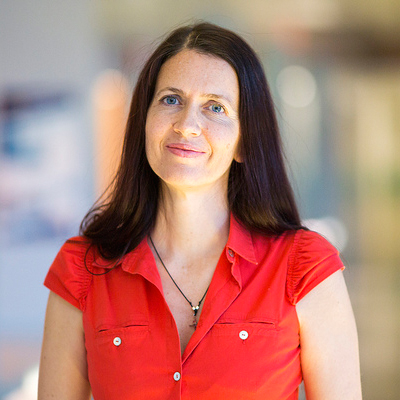How language conveys sophisticated meaning about our decisions and values
Our conversations each day say something about who we are, what we believe, and the choices we make. In fact, current research argues that political orientation, values, and lifestyle choices can be predicted by language patterns. At the frontline of such research is Dr. Rada Mihalcea, Associate Professor of Computer Science and Engineering at the University of Michigan, who studies computational linguistics to investigate how she can use language to understand human behaviors. Thus, her research can provide answers to fundamental questions about human nature and help get down to the roots of why we are the way we are. Additionally, practical applications range from medical pursuits where language can be used to gain insight into certain illnesses all the way to legal and political applications or market research. Thus, through research that asks basic questions, she and her team are able to impact society broadly.
Dr. Mihalcea’s efforts provide a unique lens into the interaction between language and behavior. Her sophisticated computational linguistics techniques coupled with methods from psychology and sociology are helping to gain deeper insights into human nature. She and her team have already made important progress through many years of research and in the future, aim for many more major findings, with applications in several fields. In addition to several projects where human behavior is tracked through language use, Dr. Mihalcea is also working on projects that aim to sense human behavior by using other channels such as facial expression, physiological metrics, and acoustic features. In this way, Dr. Mihalcea puts the large data sets available in our data-driven world to use and is able to apply such data to use language along with other communication channels as a window into human nature by tracking and understanding people’s behaviors and characteristics!
Current research includes:
-
Cultural Values: Dr. Mihalcea is using computational linguistics to make sense of how language sheds light on people’s personal values. In so doing, she hopes that her research may help identify differences in cultural values which will affect policy and social change, including better personalized ways of interacting with people with different cultural valuers in the context of healthcare or education.
-
Exploring Meaning: Often it can be challenging to translate the meaning of a word due to the subtle nuances of cultural differences. Dr. Mihalcea is exploring such nuances by testing her hypothesis that people from different cultures use similar words in different ways. Her research will help answer fundamental questions about human language and communication in addition to aiding in more practical applications. For instance, such research could identify how women are regarded cross-culturally based upon language and culture.
-
Multimodal Tracking of Human Behavior: By expanding her expertise in computational linguistics to other communication channels, Dr. Mihalcea is looking at other factors like facial expressions and physiological markers to track behaviors such as affect, alertness, stress, or deception. Therefore, her efforts may help learn not only about people’s behaviors but also will help develop practical applications that benefit from this knowledge about people.
Bio
Even as a child, Dr. Rada Mihalcea had an inquisitive determination. She recalls spending hours sitting in the grass searching for four leaf clovers as a small child. Her mother would tell her, when she was as young as six, that she would become a researcher simply because of her persistence. When school age, her persistence matched with her intelligence which developed into a dedicated student. She realized early on that she had a knack for mathematics. In fact, she often participated in the National Olympiads of Mathematics which naturally lead her to study computer science as well.
At the same time, being born in a bilingual family, Dr. Mihalcea had a passion for languages. Born in Romania, Dr. Mihalcea’s family was diverse exposing her to the language and culture of Romania, Italy, Hungary, and by the time she went to graduate school in the US, her current work in computational linguistics turned out to be the ideal field for her, as it combines computer science and the study of natural languages in an enriching and empowering way.
In her free time, aside from research, Dr. Mihalcea’s passion for traveling keeps her busy visiting countries around the world. Additionally, she loves to read, a lifelong hobby first introduced to her by her grandfather, who had a large book collection, and her mother, who spent a lot of time reading to Dr. Mihalcea as a child and is even now getting a lot of books from her.
Website: http://web.eecs.umich.edu/~mihalcea
Publications
Awards
Presidential Early Career Award for Scientists and Engineers (PECASE), 2009
Awarded by President Barack Obama


